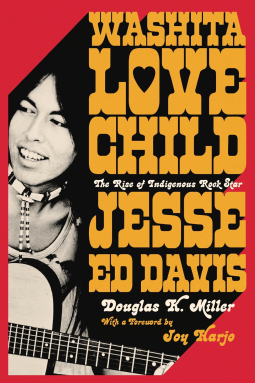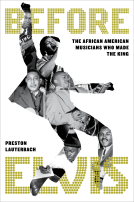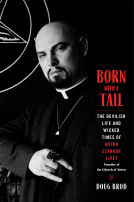
Washita Love Child
The Rise of Indigenous Rock Star Jesse Ed Davis
by Douglas K. Miller
This title was previously available on NetGalley and is now archived.
Send NetGalley books directly to your Kindle or Kindle app
1
To read on a Kindle or Kindle app, please add kindle@netgalley.com as an approved email address to receive files in your Amazon account. Click here for step-by-step instructions.
2
Also find your Kindle email address within your Amazon account, and enter it here.
Pub Date Nov 12 2024 | Archive Date Oct 31 2024
W. W. Norton & Company | Liveright
Talking about this book? Use #WashitaLoveChild #NetGalley. More hashtag tips!
Description
“I first met Jesse Ed Davis in the late ’80s. . . . [He was a] gentle yet intensely present giant who was a legend of an artist. . . . In Washita Love Child, Jesse Ed Davis is resurrected in story.”
—Joy Harjo, from the foreword
No one played like Jesse Ed Davis. One of the most sought-after guitarists of the late 1960s and ’70s, Davis appeared alongside the era’s greatest stars—John Lennon and Mick Jagger, B.B. King and Bob Dylan—and contributed to dozens of major releases, including numerous top-ten albums and singles, and records by artists as distinct as Johnny Cash, Taj Mahal, and Cher.
But Davis, whose name has nearly disappeared from the annals of rock and roll history, was more than just the most versatile session guitarist of the decade. A multitalented musician who paired bright flourishes with soulful melodies, Davis transformed our idea of what rock music could be and, crucially, who could make it. At a time when few other Indigenous artists appeared on concert stages, radio waves, or record store walls, in a century often depicted as a period of decline for Native Americans, Davis and his Kiowa, Comanche, Cheyenne, Seminole, and Mvskoke relatives demonstrated new possibilities for Native people.
Weaving together more than a hundred interviews with Davis’s bandmates, family members, friends, and peers—among them Jackson Browne, Bonnie Raitt, and Robbie Robertson—Washita Love Child powerfully reconstructs Davis’s extraordinary life and career, taking us from his childhood in Oklahoma to his first major gig backing rockabilly star Conway Twitty, and from his dramatic performance at George Harrison’s 1971 Concert for Bangladesh to his years with John Trudell and the Grafitti Man band. In Davis’s story, a post-Beatles Lennon especially emerges as a kindred soul and creative partner. Yet Davis never fully recovered from Lennon’s sudden passing, meeting his own tragic demise just eight years later.
With a foreword by former poet laureate Joy Harjo, who collaborated with Davis near the end of his life, Washita Love Child thoroughly and finally restores the “red dirt boogie brother” to his rightful place in rock history, cementing his legacy for generations to come.
Advance Praise
"For fans of Jesse Ed, this book has been a long time coming. It finally gives the iconic, almost mythological musician a voice and humanity that many of us have been curious about for years. Like Jim Thorpe before him, Jesse helped move the dial when it came to how the outside world has viewed Native people. From his early life in Oklahoma to touring as a young guitar player, to playing sessions in LA to his own solo career—he started a movement in Indigenous art that continues today—Jesse is one of the original threads." -Sterlin Harjo, filmmaker and creator of Reservation Dogs
"Jesse Ed Davis was a real musician’s musician, a subtle and sensitive player in service of whatever song he contributed to. While it might not require another musician or historian of Native American history to tell this story, we can be thankful that Douglas K. Miller is both, as he tells Davis’s story with depth and context." -Bill Janovitz, author of Leon Russell: The Master of Space and Time’s Journey Through Rock & Roll History
"The fact that [Jesse] Ed came out of Oklahoma and went through all of these different amazing musicians, and proved himself over and over and over again, is a phenomenal story.... It’s his origins and his rise that are so phenomenal, and it’s his individual story." -Robbie Robertson
"Jesse was the genius of the red dirt Tulsa sound, the shuffle blues that supercharged rock music. Pondering the sad demise of his meteoric career, we resort to stereotypes of the ‘doomed midcentury Indian’ with narrowing horizons. But Douglas K. Miller dismantles the stereotype by narrating the complex, epic sweep of the Native Americans’ progress, and one musician’s triumphs within it. Jesse Ed Davis emerges as a tragic star, leading a diverse generation into a new century." -Daniel Mark Epstein, poet and author of The Ballad of Bob Dylan
"That the Indigenous guitarist, songwriter, singer, and producer Jesse Ed Davis is not more well known, especially given the number and quality of his collaborations with some of rock’s most luminous icons, is something of a mystery. Douglas K. Miller’s book aims to change that, and it’s a welcome effort." -Howard Fishman, author of To Anyone Who Ever Asks: The Life, Music, and Mystery of Connie Converse
"For those of us musicians and fans, [Jesse Ed’s] sound and the way he approached his solos and rhythm playing was just so unique. He had great chops, great ability, but his soul is what I loved....He was just one of the most original, and soulful, and cool guitar players." -Bonnie Raitt
Available Editions
| EDITION | Hardcover |
| ISBN | 9781324092094 |
| PRICE | $35.00 (USD) |
| PAGES | 400 |


















